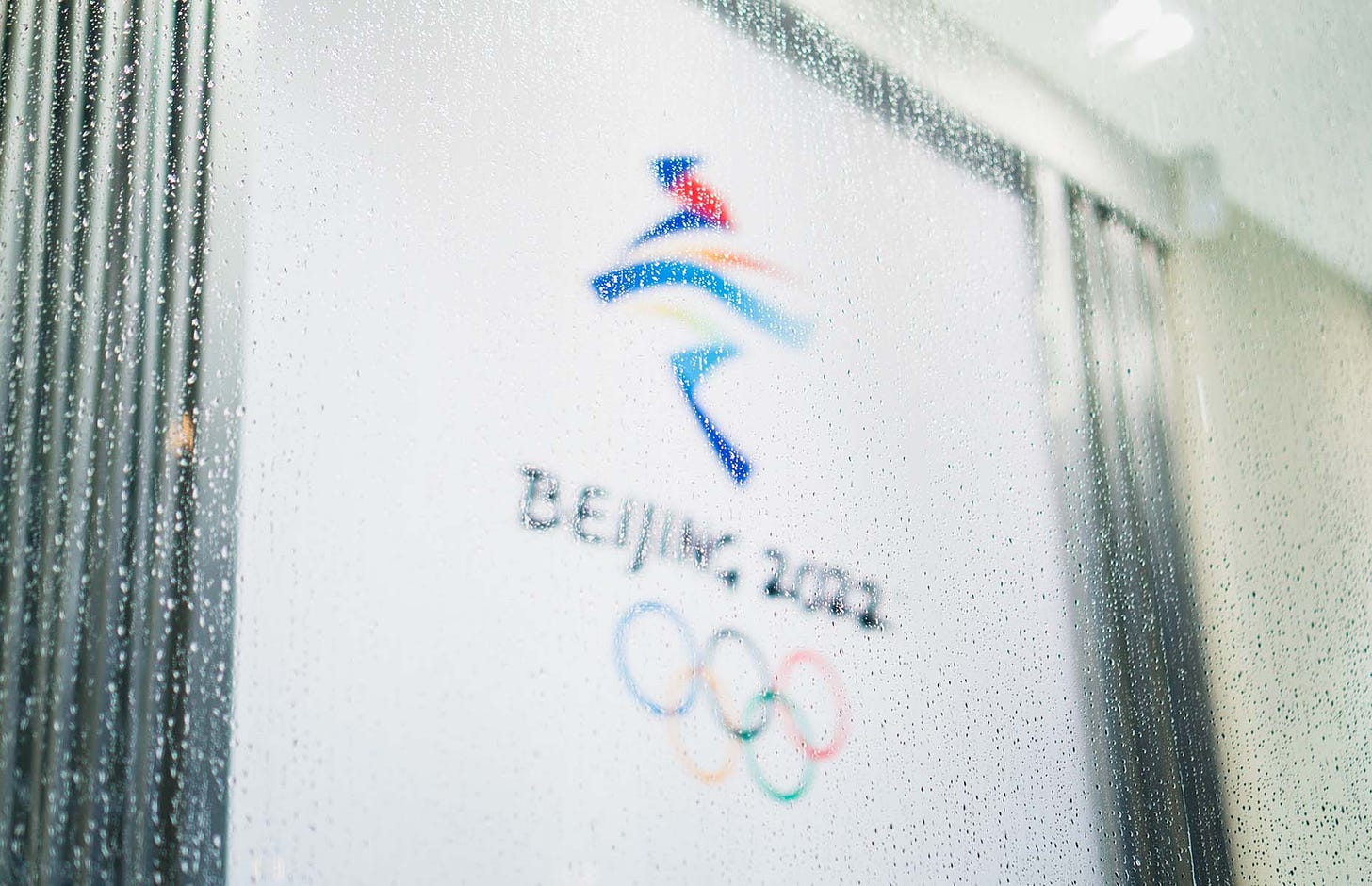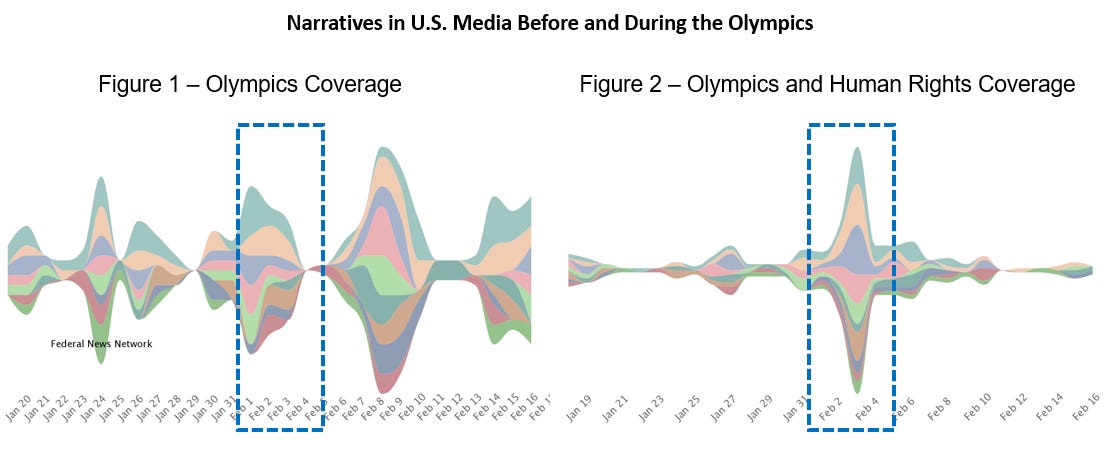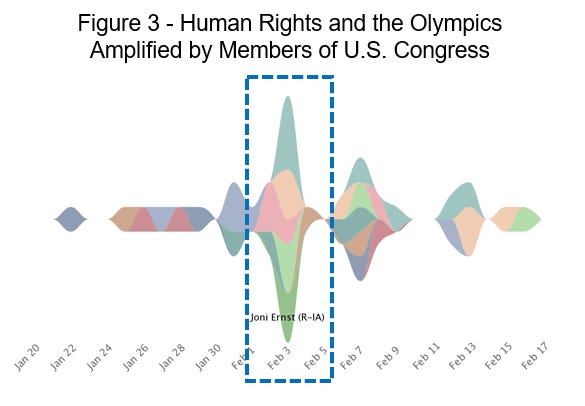
Media coverage of the 2022 Winter Olympics has been dominated by controversy, from artificial snow to allegations of China’s human rights violations. In this post, we’ll use Kudzu Narrative Intelligence Briefs to illustrate patterns and trends among U.S. media, members of the U.S. Congress, and European media around these controversies.
U.S. media has obviously discussed the games both before and after the opening ceremony, but their coverage of human rights abuse notably spiked just before the start of the games. Below are two figures spanning the exact same time frame.

The left-hand chart, taken from this Kudzu brief, shows an analysis of the coverage of the Olympics in general, while the right-hand chart, taken from this Kudzu brief, includes the Olympics and human rights specifically. Notice how the human rights coverage spikes right before February 4th (the first day of the Olympics), while the general coverage actually begins to decline before the ceremony.
Keyword analysis indicates that a singular event did not produce this spike in the right-hand chart; rather, the sources covered allegations of China’s abuse of human rights in a general sense. This suggests that U.S. media sought to highlight these allegations one last time before the events and medals of the Olympics took over the spotlight.
Over in the U.S. Congress, articles amplified by members spiked before the opening ceremony as well, particularly from Republicans. An analysis of the coverage by members of the U.S. Congress shows members of the House and members of the Senate amplifying a roughly similar number of articles, with the Senate amplifying 41 and the House amplifying 52.
Republicans have amplified narratives around human rights issues significantly more than their Democratic counterparts. While 13 Democrats had 13 amplifiers, Republicans had 78 – roughly six times more than the Democrats. Furthermore, Republicans solely contributed to the narrative spike before the opening ceremony of the Olympics, as shown in the figure below.

Republican members have also led the initiative to respond to allegations of China’s human rights violations, where Rep. Gallagher (R-WI) and Sen. Rick Scott (R-FL) have both proposed legislation to reprimand the International Olympic Committee for its contributions to China concerning the Olympic Games. Not to discount the Democratic condemnation of China’s human rights abuses, the significantly greater outcry by Republicans displays the inclination of the Republican party to distrust China’s actions.
European-based media have covered a broader range of these controversies compared to the U.S. spotlight on human rights abuses. For instance, the keyword “diplomatic boycott” had roughly 50 more instances than “rights abuses” in European sources about the Olympics and human rights. Mentions of “rights abuses” by European media sources outnumbered by those by U.S. sources by 60 at the time this Kudzu brief was created.
U.S. media sources mention the massive amount of artificial snow China has generated to sustain this year’s Winter Olympics, European media not only seems to discuss the artificial snow more often but also highlights its controversial use because of its potential negative effect on the climate. Europe’s broader discussion of controversies concerning China toward the Olympics suggests the U.S. media addresses allegations of China’s human rights abuse to a disproportionate degree in respect to other controversies. Both European media and U.S. media, however, significantly drop their discussion of human rights in general after the opening ceremony due to the coverage of the games themselves.
Coverage of the controversies surrounding China and its hosting of the Winter Olympics began to subside once that the games started, but three key points have emerged:
Readers are encouraged to do more in-depth examinations of the Kudzu Narrative Intelligence Briefs linked throughout this article: